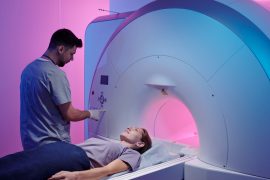Public health, as defined by the Encyclopedia of Public Health, is ‘the field of medicine and hygiene dealing with the prevention of disease and the promotion of health’. Public health saves millions of lives at a time for healthier community. The world’s public health needs are rapidly changing with more complex problems that require interdisciplinary approaches and collective efforts from a broader society. Therefore, corresponding changes and challenges in public health education are envisioned. Public health training and education, having been practiced for more than a century, is now facing a number of profound and dynamic challenges, such as increasing demand for public health professionals, short of global health workforce, and the needs to engage with policy-makers, private sectors, and communities.
A fresh look of graduate public health education is needed in order to meet the needs of the public health workforce locally and internationally. According to the Strategic Plan (2016-2010) of the Council of Academic Public Health Institutions Australia (CAPHIA), a ‘well-educated public health workforce whose practices are informed by cutting-edge research is more important to Australia’s future than at any point in history’. Curriculum development for public health education should be able to promote critical, interdisciplinary thinking, appreciate community engagement in health promotion, and integrate broad definitions of health from physical, mental, and social dimensions.
Assessment is a crucial part within higher education because it not only provides evidence for student learning but also makes contribution to it. It is argued that assessment defines the curriculum. The design of assessments is one of the most important influencing factors of students’ learning approaches, and therefore contributes to learning outcomes. However, according to the report ‘Assessing Learning in Australian Universities’ conducted by the Centre for the Study for Higher Education for the Australian Universities Teaching Committee, the role of assessment is very different for academics and students. Assessment is often the final consideration in curriculum design, but students often focus firstly on how they will be assessed.
The types of assessments in public health education usually include (1) summative assessment, e.g. essays and exams, (2) formative assessments, e.g. tasks completed in tutorials including the student-led facilitation, and (3) assessment for student placement including engagement with organizations (e.g. government, NGOs, universities) in Australia and overseas. With a focus on competencies in learning outcomes, a wide range of contexts are placed in the assessments, aiming to place students in ‘real-world’ situations. Therefore, designing authentic assessment is often an integrated part of public health curriculum. Given the unique nature and goals of public health education to reduce burden of disease and improve quality of life, it requires innovative assessment designs that can enable students to take a deep approach to learning, a popular theory that has been developed by Biggs, Ramsden, Trigwell and other colleagues since the 1990s. Evidence shows that better learning outcomes can be achieved when students are taking a deep approach with a better understanding of the meaning of study and more connections to their prior experience.
At the Sydney School of Public Health, teaching currently occurs all at the postgraduate level with a great diversity in student background and experience. Students can have a background of any discipline, not necessarily relevant to health, which makes assessment more challenging. Indeed, public health professionals are often required to work with other professionals to reduce the burden of diseases in populations. A recently published study on assessment for interprofessional learning outcomes provides new insights. The CAPHIA is currently preparing the 3rd edition of the Foundation Competencies for Public Health Graduates in Australia. The assessment of acquired and participatory competencies in public health higher education, particularly in collectivist settings, also requires a multidimensional approach to address the challenges.
Having more than ten years’ experience in public health education, I constantly encounter questions about assessments from my colleagues, students and my own reflection, e.g. constructive alignment, assessment for group work, standardized assessment, online assessment, and effective feedback. These questions are very relevant and crucial to improve the quality and standard of teaching and learning in the context of public health. In this series on Teaching@Sydney, I will be exploring topics on principles and practices in assessment for teaching and learning in public health. Given that very limited research is available in the context of public health education, this series also aims to identify innovative and helpful ideas from other disciplines that can assist the improvement in assessments for public health teaching and learning.
Dr Ying Zhang is a Senior Lecturer and Associate Director for Teaching and Learning (Curriculum & Assessment) at the School of Public Health. This blog series explores assessment for teaching and learning in public health and is part of the capstone project to complete her Master in Education.





